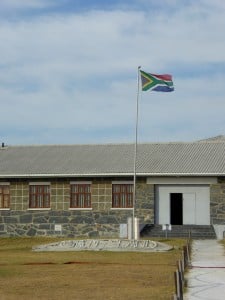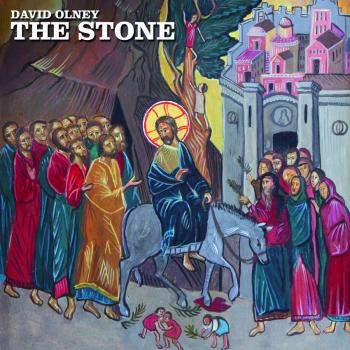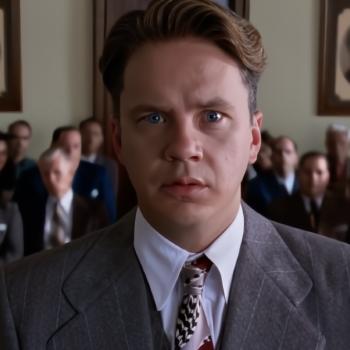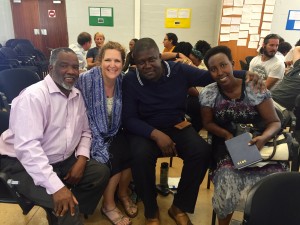I spent 5 days of Robben Island where Nelson Mandela and many others were imprisoned between January 18-22, 2016 with a group of peacemakers and activists from around the world. This blog series is a set of reflections on that time.
If we had come to Robben Island for just an afternoon, the story would have stayed in a neat and tidy box. A walk through the prison, a peek into the lime quarry, a story about a political prisoner considered even more dangerous than Mandela – Robert Sobukwe. Men who went to prison fighting for justice for their people and the end of apartheid. And then, they are released, and one of them goes on to be president of his country and oversees the writing of a beautiful constitution and the dismantling of the evil empire of apartheid. A happily ever after.
Except that country still has 40% unemployment and the most recent 2011 census showed that white households average salaries that are six times higher than black households. Communities are still highly segregated. High walls and locked doors protect those with privilege, mostly white. People lock their doors and hide their valuables in the boot (trunk) of their car in the best neighborhoods. As I listened to the South Africans in our group, I realized that the story is not as neat and tidy as an afternoon on the island may first communicate.
As a preacher and a writer, I like stories that wrap up in an afternoon or even better, just about 5 minutes. They illustrate my point. They make my listeners feel cozy and inspired. I’m pretty sure I’ve told the story of South Africa that way.
It’s not that it’s not true. Nelson Mandela was a great man and his story is truly inspirational – from political prisoner to leading his nation out of apartheid. And Desmond Tutu guided the Truth and Reconciliation Commission to a concrete example of how restorative justice can serve to heal a nation and be a model for many other nations. These men and many more set up structures, systems and possibilities for a nation of justice and equity that can be free from the blatant institutionalized racism.
But there is still much to be done.
Staying five days instead of five hours confronted me with the privilege of a sanitized story. If I can tour the island and declare the job done twenty years ago, it allows me to wipe my hands of any sense of responsibility to risk my privilege for justice today. If I can celebrate Martin Luther King Jr and venerate the Civil Rights movement as the completion of equality for blacks in the U.S., I can ignore the marginalized voices that point to the great inequities that still exist and deny any responsibility to work for racial justice.
We need to keep telling the great stories of those who have fought injustice and changed our world but we must do so with an ear to the voices that still call for justice today. We must refuse the happy ever after to any extent that it excuses the work of our time. Let’s stay to listen longer than the bus tour and hear the complexities that may reveal the work that still needs to be done. There is always more to do until the last person on earth fulfills the vision of Isaiah 65:
They shall build houses and inhabit them; they shall plant vineyards and eat their fruit. They shall not build and another inhabit; they shall not plant and another eat; for like the days of a tree shall the days of my people be, and my chosen shall long enjoy the work of their hands.
















